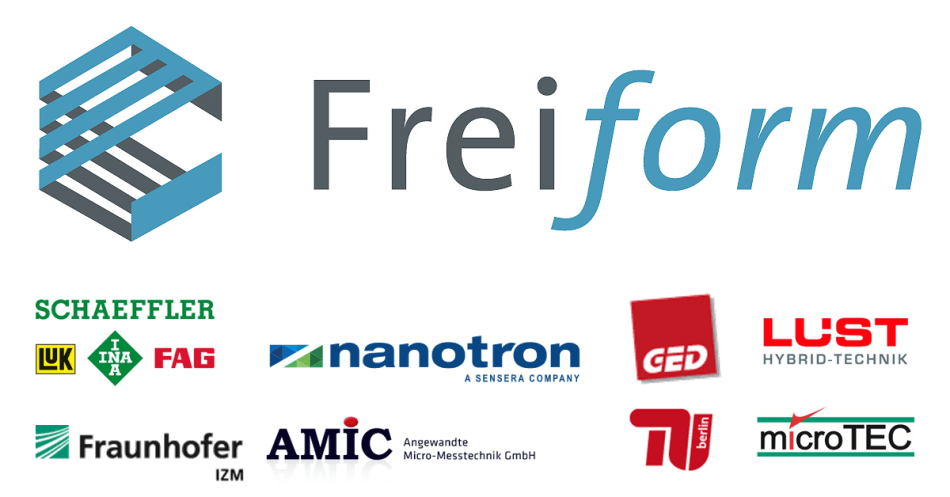Nanotron Technologies GmbH announces the completion of a three-and-a-half-year collaborative project, led by the Schaeffler Technologies AG & Co. KG, a global automotive and industrial supplier, to develop compact, intelligent, autonomous sensors, also known as 'smart Items', of any shape or form factor.

The project's successful completion was marked by a live presentation of several innovated sensor prototypes at an official event held on January 17, 2019 at Schaeffler’s headquarters in Herzogenaurach, Germany.
This collaborative cross-industry project was undertaken by a consortium of German organizations, comprising of prominent members such as AMIC, Fraunhofer IZM, GED, Lust Hybrid Technik, microTech, nanotron, Schaeffler and Technical University Berlin. The project's name 'FreiForm', meaning 'free form' in English, is directly derived from its core development concept: autonomous sensors with arbitrary shapes and forms.
With a particular focus on the Industrial Internet of Things (IIoT), the project covered all aspects of sensor system design, i.e. sensor technology, wireless data transmission, location-awareness, power supplies and signal processing. The project also included an investigation into mechanical, electrical and software design methodologies.
At the occasion of this official event, nanotron demonstrated its powerful swarm bee technology, efficiently utilizing sensors for tracking and collision awareness of transport equipment. This project inspired several enhancements to the swarm bee family and further confirmed nanotron's position in the location awareness space.
"Location awareness is the key element of next-generation safety and efficiency improvements in a wide range of manufacturing and intra-logistics applications," said Dr Jens Albers, CEO at nanotron. "This project has provided us with a unique platform for demonstrating how real-time location and sensor data technologies can noticeably reduce production costs for manufacturers such as Schaeffler."
Nanotron's swarm bee family of smart RF modules utilizes a common API with ready-made anchors that enables a coverage range of up to 500 meters with an accuracy of 10 cm. Swarm bee provides a highly power-efficient approach that extends battery life of mobile devices and smoothly scales up to meet specific customer requirements.